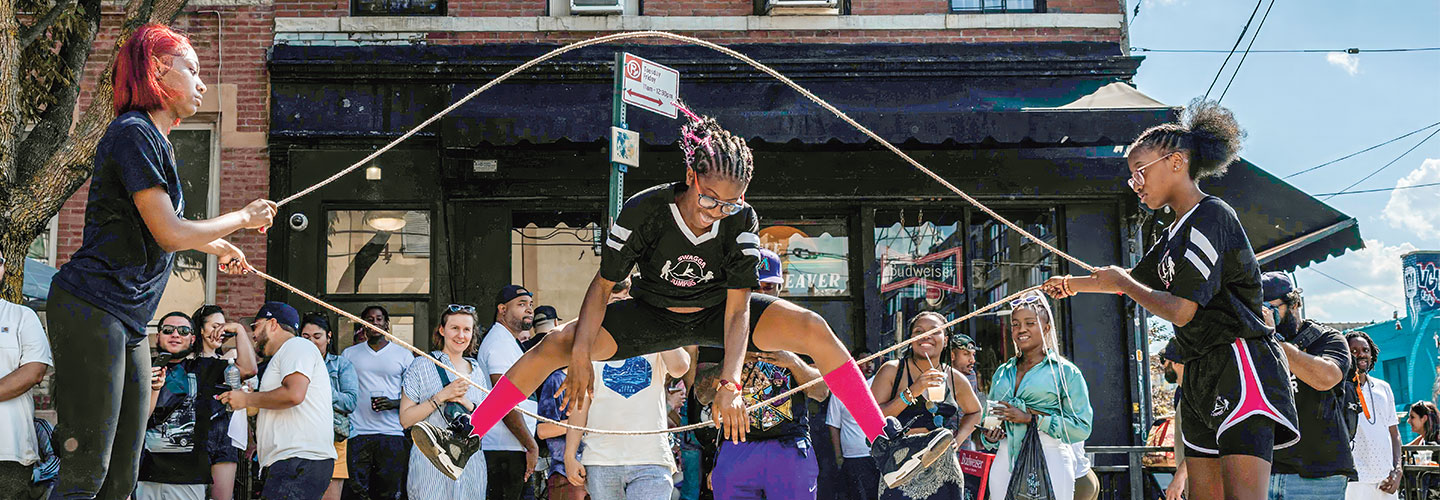In the early 1970s, kids didn’t have cell phones, video games, or YouTube to keep them entertained. Instead, they played hopscotch on sidewalks, tossed a football on their lawns, or spilled onto city streets to play stickball—a variation on baseball, played with a bouncy rubber ball and broom handle. But the sound of one game enticed kids outside like no other: the TAP, TAP, TAP of jump ropes hitting the pavement in a game of double Dutch. The activity was especially popular among Black girls.
Double Dutch requires two players to hold the end of a rope in each hand and swing the ropes inward one after the other in an eggbeater fashion. Then a third person leaps into the whirling ropes, jumping in the center for as long as possible. The rope turners often chant a rhyme to the beat of the jumper, like “Teddy bear, teddy bear, turn around. Teddy bear, teddy bear, touch the ground.”
David Walker had seen this game played countless times in Harlem, the New York City neighborhood where he grew up and worked. But in 1973, after spotting a group of young Black girls playing double Dutch there, inspiration struck. As a community affairs officer with the city’s police department, Walker had been looking for ways to get local girls involved with fitness activities. He realized that double Dutch could become a competitive sport.
In the early 1970s, kids didn’t have cell phones, video games, or YouTube for entertainment. Instead, they played hopscotch on sidewalks or football on their lawns. They also played stickball on city streets. This game is like baseball, but with a bouncy rubber ball and a broom handle. But the sound of one game drew kids outside like no other. It was the TAP, TAP, TAP of jump ropes hitting the pavement. The game was double Dutch. It was especially popular among Black girls.
In double Dutch, two players hold the end of a rope in each hand. They swing the ropes inward one after the other, like an eggbeater. Then a third person leaps into the turning ropes. This player jumps in the center for as long as possible. The rope turners keep the beat for the jumper. Often, they chant a rhyme, like “Teddy bear, teddy bear, turn around. Teddy bear, teddy bear, touch the ground.”
David Walker had seen this game played countless times in Harlem. He grew up and worked in this New York City neighborhood. But in 1973, an idea struck him. He spotted some young girls playing double Dutch in Harlem. Walker was a community affairs officer with the city’s police department. He had been looking for ways to get local girls involved with fitness activities. Walker realized that double Dutch could become a competitive sport.

